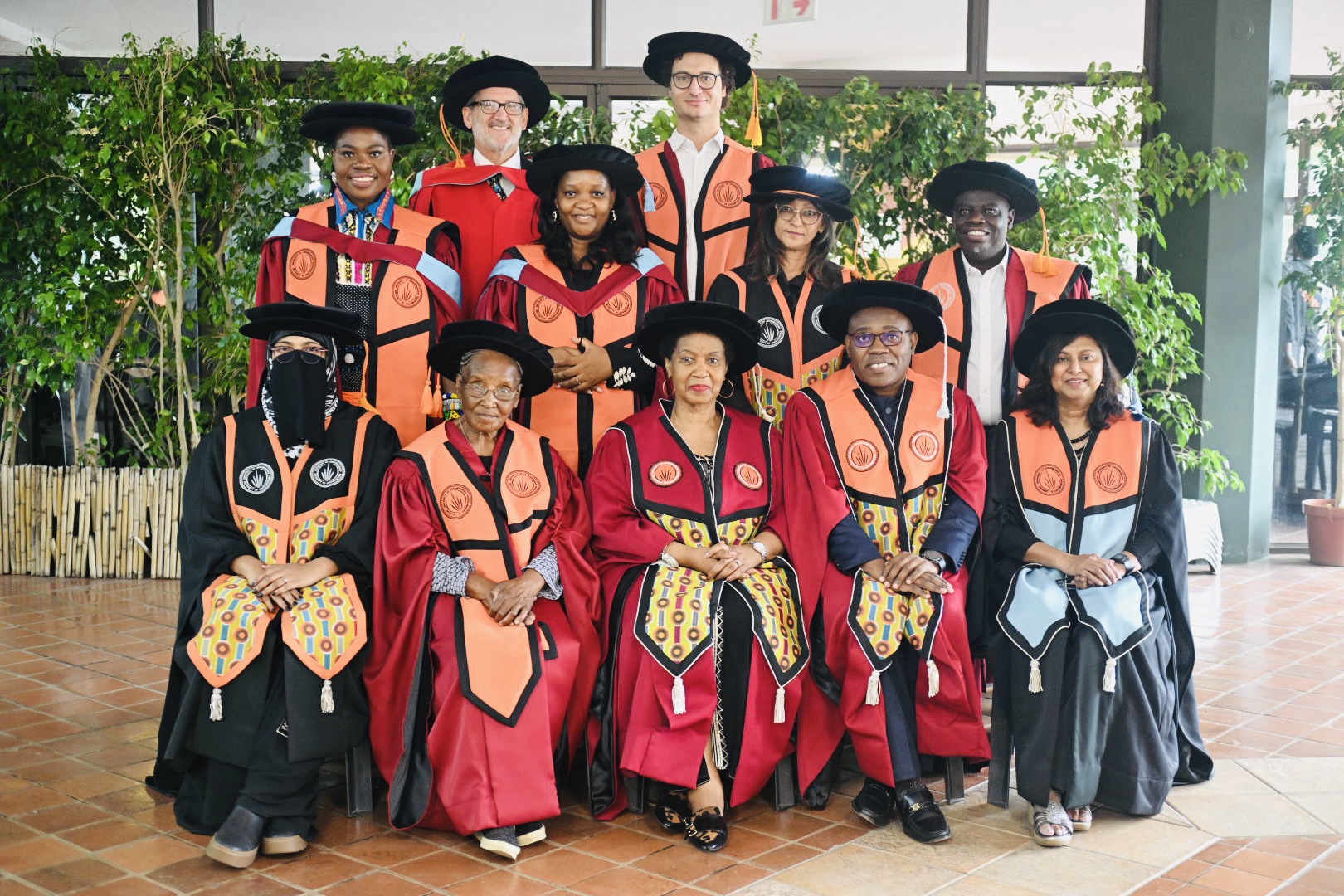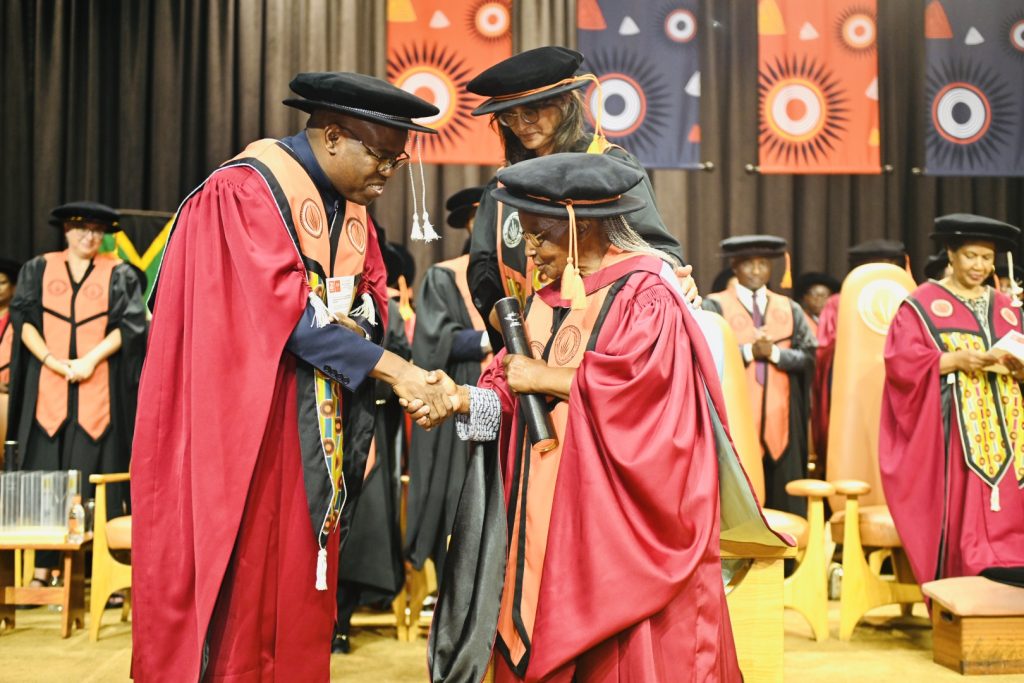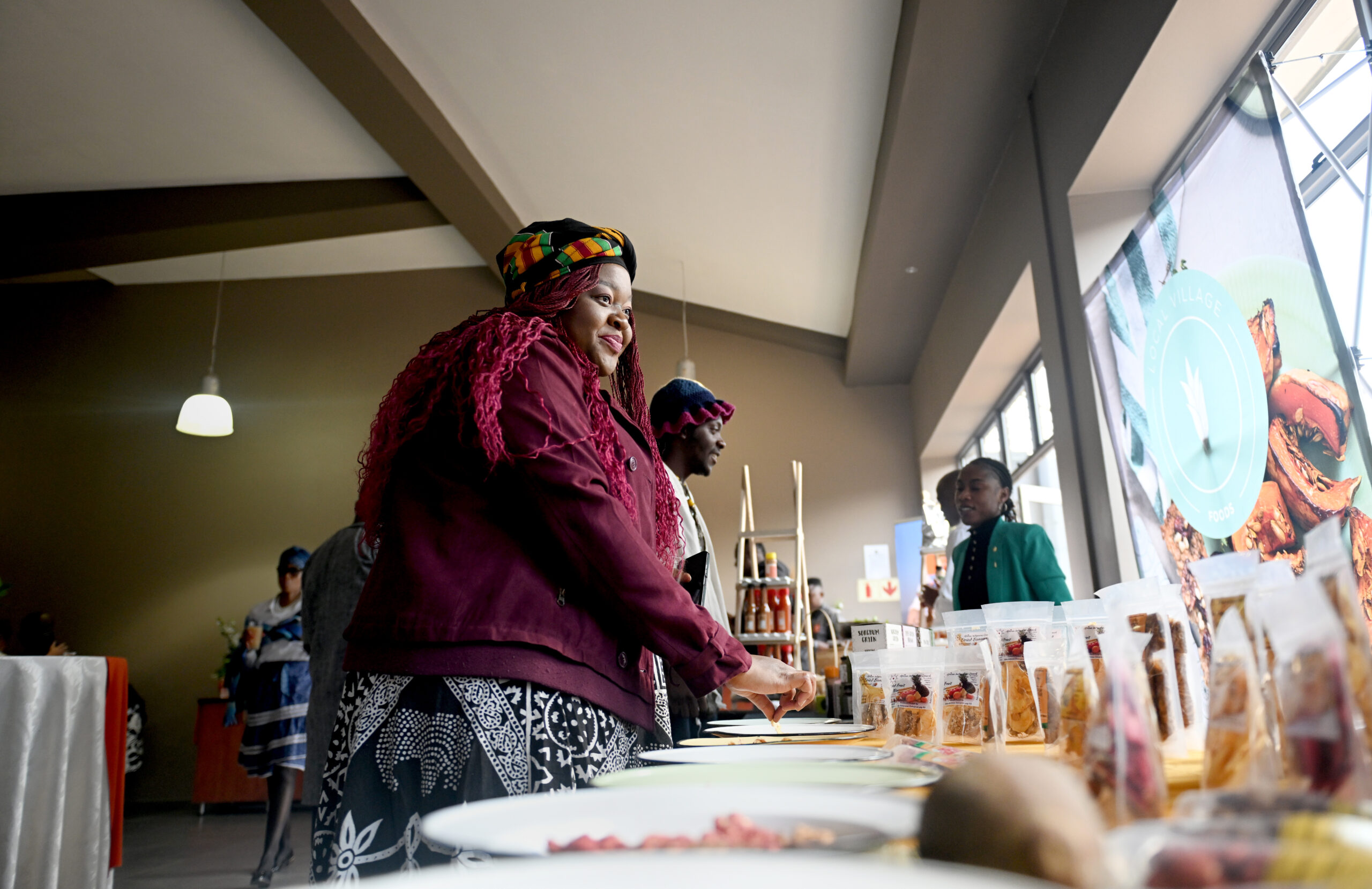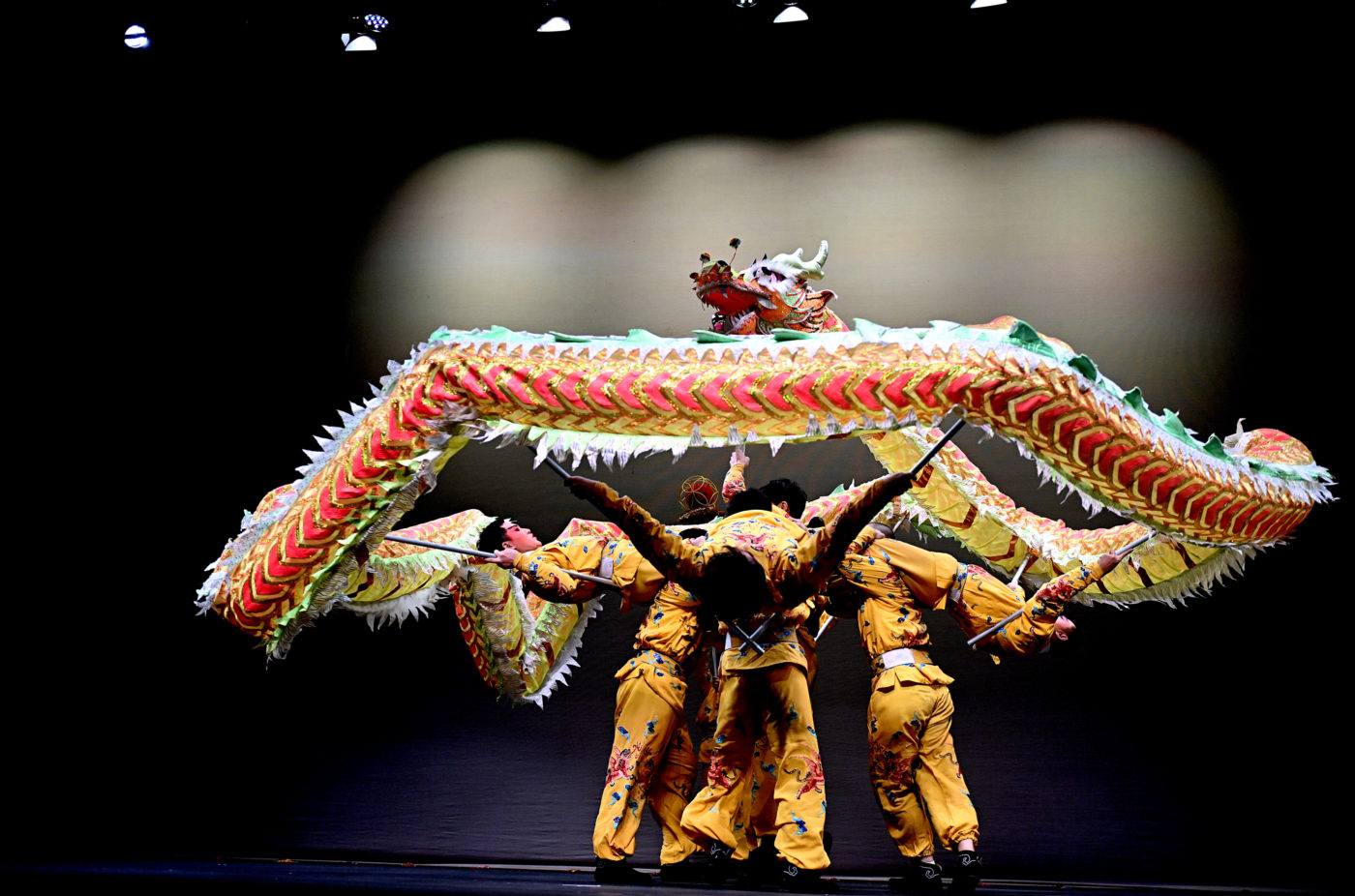The life of UJ honorary doctorate recipient, Sister Abegail Ntleko, is a testament to resilience, compassion, and unwavering service. While her advocacy and philanthropy took shape in adulthood, the seeds were sown in childhood.
The youngest of 12 children, Sister Ntleko lost her mother at just four years old. “I have been passionate about helping others since I was also helped by neighbours after my mother passed. Everyone supported me, as my father was sickly. I believe in the power of prayer, and that God wanted to use me to help His people,” she shared during her conferral speech at the University of Johannesburg’s Sanlam Auditorium on Monday, 10 March 2025.
Sister Ntleko is among eight distinguished individuals receiving honorary doctorates at UJ’s graduation ceremonies.
At 91, her journey is nothing short of extraordinary. She started school at 14 due to family hardships, completed her junior certificate at 29, and began nursing at 30. As a community health worker, she dedicated herself to assisting those most in need.
Her story is one of relentless courage and compassion. Beginning her nursing career in 1968, Sister Ntleko tackled South Africa’s rural health crises head-on, confronting diseases such as leprosy and typhoid with unwavering determination. She pioneered mobile clinics, hospitals, and orphanages while developing holistic programmes that integrated education, therapy, and agriculture to support children affected by HIV and trauma.

“I started a mobile clinic in Underberg, where there were no health services, and motivated the establishment of four residential clinics as there were no hospitals nearby. I have delivered many babies. I fought leprosy by collaborating with a sister from Edendale Hospital to screen patients. I used to carry TB treatment to patients, walking long distances to their homes where there were no roads,” she reflected.
Revered by many, including Archbishop Desmond Tutu, who once called her “the true heart of South Africa,” Sister Ntleko has raised 42 children—both fostered and adopted.
Following her retirement, she founded Clouds of Hope for orphans and vulnerable children. “St Apollinaris Hospital approached me about an orphan who was born prematurely. She had heart problems, disabilities, and other health conditions. She was given three weeks to live, but with God’s help, I gave her unconditional love. She is now 18 years old, in Grade 11, and here with us today. Her name is Xoliswa.”
Her memoir, Empty Hands, encapsulates her philosophy of communal care and the belief that hope can flourish even in scarcity.
Internationally recognised, Sister Ntleko has received the Dalai Lama’s Unsung Hero of Compassion Award and the SABC Woman of the Year Social Welfare Award.
“I am honoured to receive this award today. Thank you, UJ, and to all my guests. I am excited to see young people here—as I earned my first degree at 62! May God bless you abundantly.”
She was conferred with an honorary doctorate by UJ’s Faculty of Humanities. Vice-Chancellor, Professor Letlhokwa Mpedi, described her as the epitome of humanity:
“This honorary doctorate celebrates her life of service, her innovative approach to healthcare despite limited resources, and her profound understanding of the value of learning. She is a true embodiment of ‘living ubuntu.’”
UJ Chancellor, Dr Phumzile Mlambo-Ngcuka, closed the ceremony by acknowledging the impact of Sister Ntleko’s work:
“Graduation marks a milestone shaped by commitment, hard work, and the support of those who helped you along the way. To Sister Abegail—thank you for your service to humanity, for giving hope to those who might have otherwise given up. Everybody needs a Sister Abegail.”
As over 13,000 graduates cross the stage at UJ’s Sanlam Auditorium, they step into a world shaped by the values of innovation, resilience, and societal transformation.

Reflecting on this, Prof Mpedi remarked:
“These honourees exemplify UJ’s commitment to excellence, service, and global impact. Their legacies remind us that leadership is not measured by accolades, but by lives uplifted and boundaries redefined. At UJ, we believe education is a force for societal transformation, and these individuals embody that belief. Their stories inspire our graduates to go beyond personal success and contribute meaningfully to the world.”



